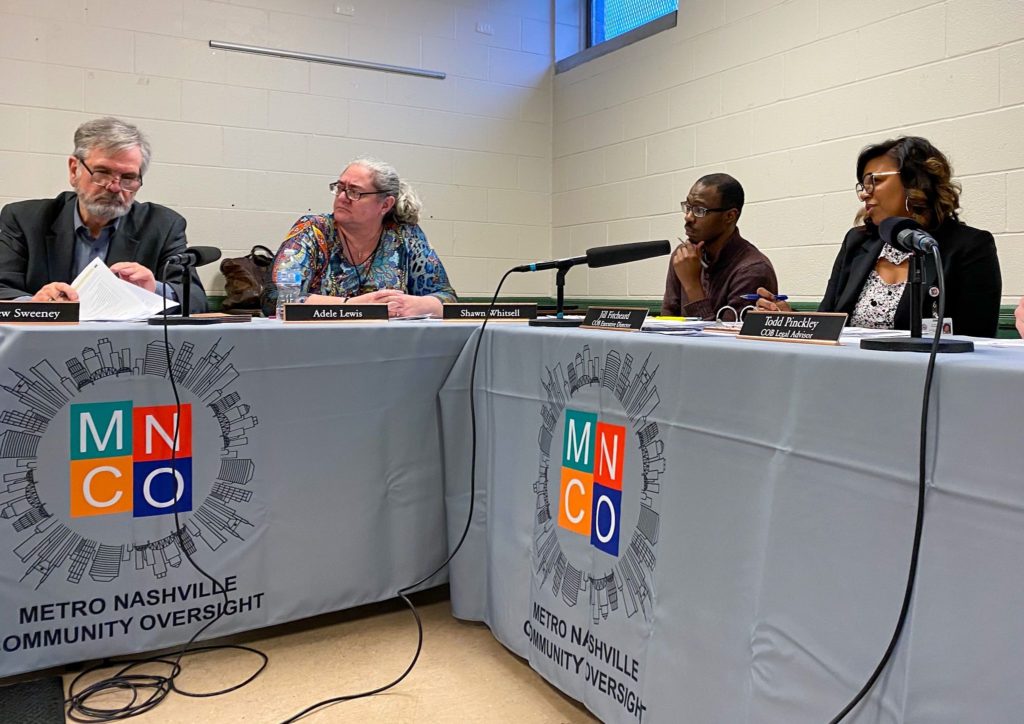
Five Metro Council members have introduced a plan to reconstruct Nashville’s Community Oversight Board in the wake of a new law to abolish such boards as they currently exist in Tennessee.
That law, signed by Gov. Bill Lee last month, dissolves community oversight boards like the ones in Nashville, Memphis and Knoxville. It goes into effect on July 1. After that, local governments have 120 days to replace their COBs with less-powerful “review” boards.
In Nashville’s case, the law also calls for reducing the number of board members from 11 to 7, giving the mayor the power to appoint board members without outside input, and stripping the board of its subpoena power, hampering its ability to conduct independent investigations into complaints of police misconduct.
The Metro Council’s proposal seeks to reconstruct Nashville’s board as a review board in compliance with the new law, while preserving as much of the COB’s original function as possible, says board member Alisha Haddock.
“If we had not created an ordinance, then we would cease to exist,” she said. “For lack of better terms, we have lived to fight another day.”
The five council members sponsoring the proposal are Zulfat Suara, Sean Parker, Jeff Syracuse, Delishia Porterfield and Burkley Allen. The first reading of Metro Council’s new ordinance to reform Nashville’s COB is scheduled for June 20.
Currently, the board is made up of members appointed by a combination of the mayor’s office, Metro Council and the community. The proposal would attempt to maintain the Metro Council’s and community organizations’ roles in appointing members. It would also allow the Metro Council to request subpoenas on behalf of the board, allowing them to retain more of their investigative ability.
Haddock said the COB is also still considering legal action to fight the state’s efforts to replace it. She said state legislature’s efforts to weaken or abolish community oversight boards constitute voter suppression.
Nashville’s COB formed after a 2018 referendum, when more than 134,000 Nashvillians voted to establish a community oversight board as a way to increase police accountability following the police killings of Jocques Clemmons in 2017 and Daniel Hambrick a year later. The measure won by a 20% margin citywide, and it won a majority in 29 of 35 Metro Council districts.
“We can easily call that voter suppression,” said Haddock. “If 134,000 people voted for something and then the state says, ‘You know what, never mind, your vote essentially doesn’t count,’ then I don’t know what else to call it.”

